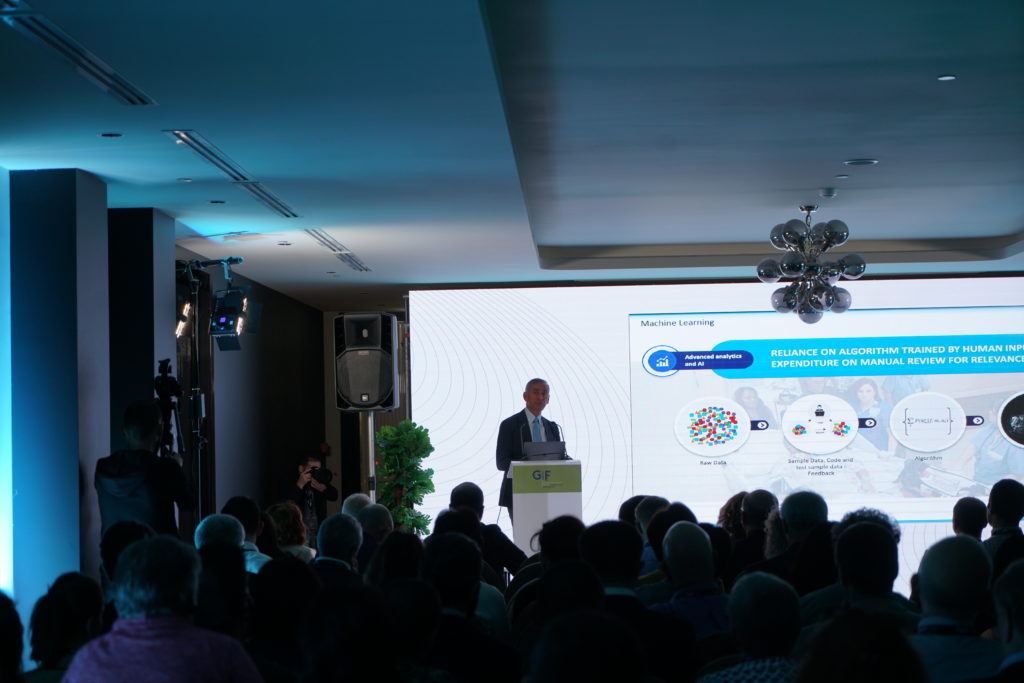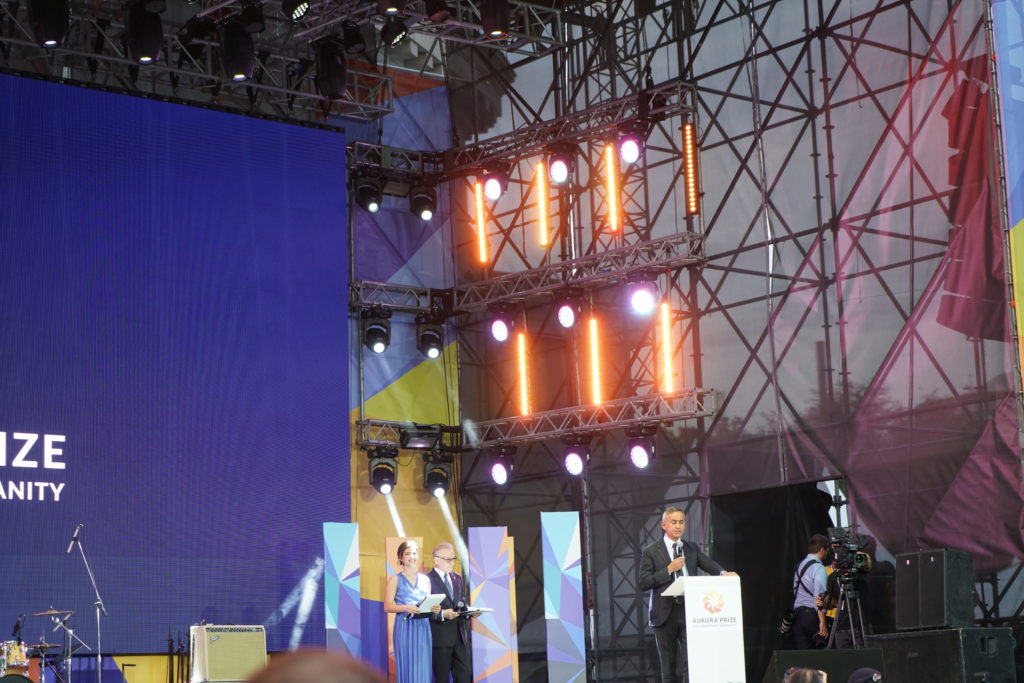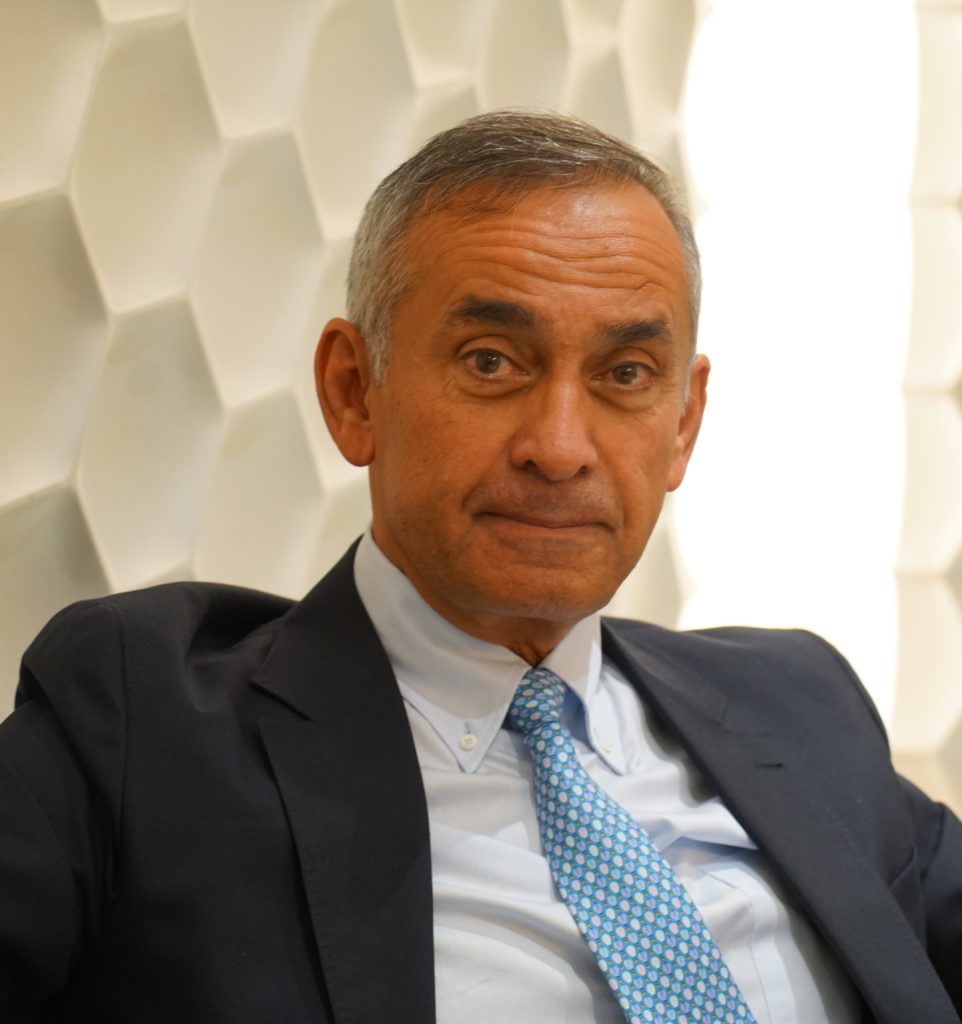YEREVAN – As the first Armenian serving in the British parliament, Lord Ara Darzi expressed his joy at the vote on the Armenian Genocide resolution in the US House of Representatives and in a November 6 letter (https://www.theguardian.com/world/2019/nov/06/recognising-the-armenian-genocide) called on the British parliament to do the same. A few weeks earlier, he was in Armenia to participate in the Aurora Forum events (see other coverage in the Mirror-Spectator). Darzi joined the Aurora Prize Selection Committee at the end of 2017 and was appointed as its chair at the Aurora Forum this year.
Health Policy Leader
Aside from being in the House of Lords, he is an important figure in the field of global health policy, helping design healthcare systems throughout the world. Dr. Darzi serves as Director of the Institute of Global Health Innovation at Imperial College London, hold the Paul Hamlyn Chair of Surgery at Imperial College London, Institute of Cancer Research and Executive Chair of the World Innovation Summit for Health in Qatar, and is a Consultant Surgeon at Imperial College Hospital National Health Service (NHS) Trust and the Royal Marsden NHS Trust. He was a health minister for Great Britain from 2007 to 2009. He has been a member of the Privy Council of the United Kingdom since June 2009 and was awarded the Order of Merit in January 2016.
He has published more than 1,000 peer-reviewed research papers to date and continues to work actively as a surgeon, specializing in minimally-invasive and robot-assisted surgeries.
On October 17, Dr. Darzi gave a keynote speech on “Converging Technological Innovations into Medicine,” as part of the second annual Global Innovation Forum (GIF) called “Transforming Intelligence,” organized by the Foundation for Armenian Science and Technology (FAST) at the Dvin Music Hall in Yerevan. FAST (https://fast.foundation) wants to spur technological innovation and scientific advancement in Armenia and beyond, while GIF’s stated goal is to act “as a platform to bridge academia, industry, governments, policymakers, international organizations and financial institutions, assembling the brightest minds and executives from diverse worlds to shape the future of scientific and technological transformation.” Armenia benefits as the host of this interaction.

After his formal talk, Darzi explained why he is on the board of FAST: “I sit on many [board] in life but I decided to sit on FAST because I believe in what FAST is trying to do. I believe in the founders of FAST. I think they have really gone out of their way to make a huge commitment, not just financial commitment but intellectual commitment, in building this country [Armenia] in areas of science and innovation. It is a great privilege to be part of that…very, very busy sets of people, people like Noubar [Afeyan] and people like Ruben [Vardanyan], who could have millions of other things to do, are putting all their efforts and resources into getting FAST and its programs off the ground.”










